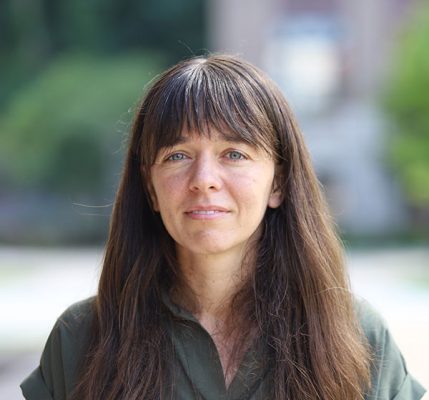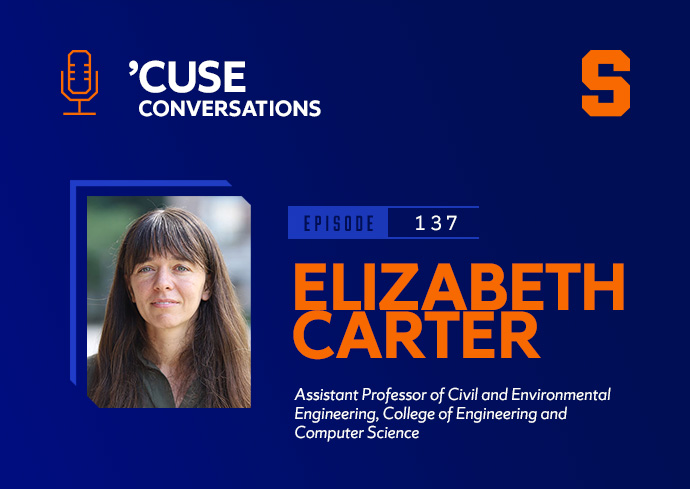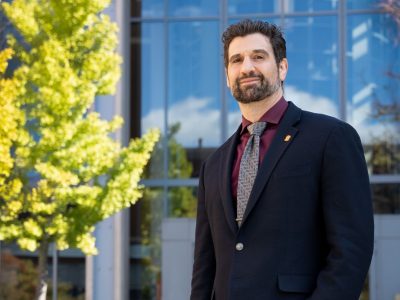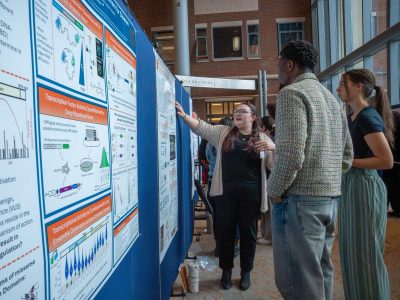Earth Day is an annual opportunity to celebrate our planet and its resources. It is also a day to act on climate change. The changing climate is already making natural disasters more frequent and severe, making it imperative to take steps to reduce our vulnerability to these events.

Elizabeth Carter, assistant professor of civil and environmental engineering in the College of Engineering and Computer Science, is a leading expert on disaster mitigation and climate risk management. She is passionate about finding solutions that will help communities become more resilient to climate change and views the climate crisis from both an environmental and societal aspect.
“I study natural disasters that happen at the intersection of where bad weather meets the water cycle,” Carter says. “Any event that results in a flood or a drought would be the impacts that we’re trying to ameliorate.”
Floods and droughts have increased in the last 10 years, according to the World Meteorological Organization and a recently published study in the journal Nature Water. Scientists have found that the number of flood and drought events has increased by 50% since 2010, and the intensity of these events has also increased.
Recent findings attribute the increase in floods and droughts to climate change. Rising global temperatures are causing more extreme weather events, including heavier rains and longer dry spells. These extreme weather events are having a devastating impact on people and communities around the world.
Carter, like many climate scientists, is working to help communities become more resilient to climate change by developing tools and strategies that can help them prepare for and respond to extreme weather events.
On this climate-focused “’Cuse Conversation,” Professor Carter discusses why the work around disaster prevention, mitigation and prediction is a necessary focus for the global health of our world. A transcript [PDF] is also available.



